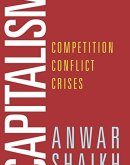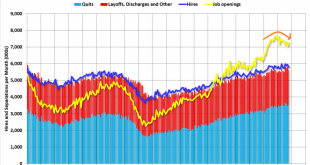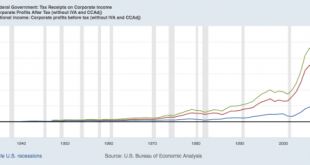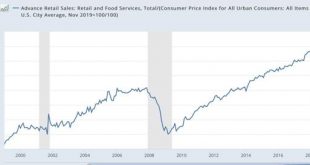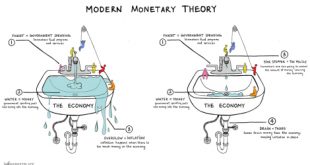Lars Syll Since there will generally be many micro foundations consistent with some given aggregate pattern, empirical support for an aggregate hypothesis does not constitute empirical support for any particular micro foundation … Lucas himself points out that short-term macroeconomic forecasting models work perfectly well without choice-theoretic foundations: “But if one wants to know how behaviour is likely to change under some change in policy, it is necessary to model the way people...
Read More »The economics of negative interest rates: editors’ introduction
Thomas Palley, Louis-Philippe Rochon, Guillaume Vallet , Review of Keynesian Economics, April 2019. The Great Recession (2008/9) triggered by the financial crisis of 2008 has had considerable impact on the conduct of monetary policy. Before the recession, monetary policy was largely based on a New Consensus-type macroeconomic model and it targeted inflation via a Taylor […]
Read More »Total failure
The country is on fire. And: The PM disappears overseas. His supporters spin the fact that it’s only his second overseas holiday this year (not second holiday, or second largely recreational OS trip)The media are ordered not to report the fact, or even that we have an acting PM. Compliance is near-total until Twitter outrage puts the issue into the international pressTory-fighter Albanese gives Morrison a free pass. Still hasn’t pushed the government on link to climate change. Would...
Read More »The Art of Conservative Persuasion, Don Boudreaux Edition:
Being an economist can be frustrating. Most people do not understand how markets work, and economists spend a good deal of time arguing against bad policy ideas that appeal to non-economists, and for good ideas that do not appeal to common-sense. This can sometimes feel like pushing rocks uphill. Plus it can lead people to suspect that you are carrying water for the corporate rich, which is unpleasant. But what is it like to be an extreme right-wing...
Read More »JOLTS, Fed lending survey, Tariff comment
Still rolling over:
Read More »Taxing the surplus—not
from David Ruccio There aren’t many ways ordinary Americans have a say in what happens to the surplus that determines their fate. Most of the surplus in the United States is appropriated by the boards of directors of large corporations. But most employees are excluded from the decisions in their workplaces about what’s done with that surplus. Their local communities, where the corporations operate, don’t have much of a say either. That leaves federal taxes. Corporate income taxes are...
Read More »Open thread Dec. 17, 2019
Fair and Balanced? Tyler Cowen on Wolff on Wealth Taxes.
Here is the abstract of a new paper by Edward Wolff: The paper analyzes the fiscal effects of a Swiss-type tax on household wealth, with a $120,000 exemption and marginal tax rates running from 0.05 to 0.3 percent on $2,400,000 or more of wealth. It also considers a wealth tax proposed by Senator Elizabeth Warren with a $50,000,000 exemption, a two percent tax on wealth above that and a one percent surcharge on wealth above $1,000,000,000. Based on the...
Read More »November real retail sales show consumption still weakly positive
November real retail sales show consumption still weakly positive Retail sales are one of my favorite indicators, because in real terms they can tell us so much about the present, near term forecast, and longer term forecast for the economy. This morning retail sales for November were reported up +0.2%, while October was also revised up +0.1%. Since consumer inflation increased by +0.3%, however, real retail sales were down less than -0.1%. Real retails...
Read More »Can governments ever run out of money?
from Lars Syll Whether it’s more nurses, frozen tax promises, free broadband internet or more social housing in the UK; or tax cuts and green energy investments in America, public spending is set to surge. This sudden abandonment of fiscal rectitude comes amid the rise in prominence of a way of thinking about money, spending and the economy – Modern Monetary Theory (MMT). According to its key architect, US businessman Warren Mosler, it is based on a simple idea – that countries that...
Read More » Heterodox
Heterodox

